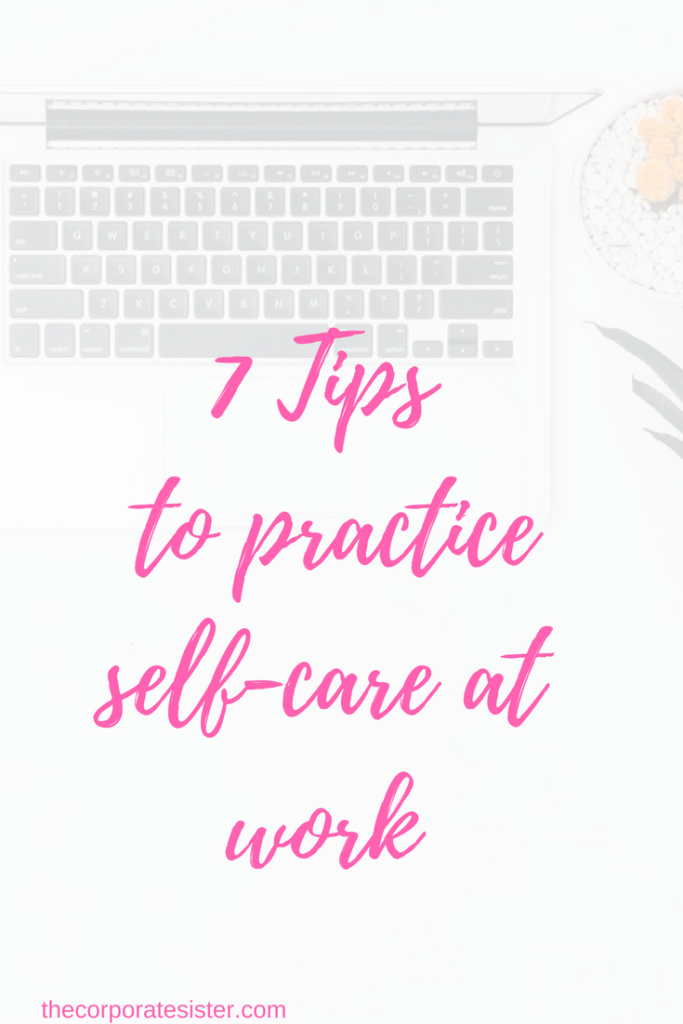
by Solange Lopes | Jun 13, 2018 | Career
If you’ve been at your job for some time, you may have noticed yourself getting more complacent and borderline bored at times. As a working woman, you may enjoy the amenities, benefits and compensation that naturally come with the territory. You may even have formed healthy and positively happy relationships at your workplace, and may feel at home there. Our jobs may be so comfortable that we can refrain from proactively seeking to advance and grow in your careers. This may result in it taking a few years for you to realize that you may be in a dead-end job that may not really fulfill you or motivate you to accomplish your purpose.

While it can be challenging to do so, it’s crucial to look for tell-tale signs like boredom, extreme routine, salary plateaus, and work overload. If you’re getting up every day with a certain lack of excitement, you may want to start re-considering if stagnation has been invading your work. Better yet, you should take some time out to stop and re-evaluate your work at frequent intervals to ensure that you’re not just going through the motions when it comes to your career.
If you’re reading this and considering how to avoid stagnation in your career, here are a few ways to consider:
-
Never stop learning!
As working women especially, we have so much on our plates that we end up foregoing our need to learn and evolve at work and in life. We no longer make learning and growing a priority, and sometimes even believe we know enough to advance in our careers and lives. We tend to get stuck into familiar patterns and cycles that keep us not moving forward in our careers. Very often, we even fail to recognize the many lessons showing up in our daily lives and work.
It is often said that your job is paying you to learn, and nothing could be truer. Learn to spot and use any and every opportunity to learn something new in your career. Whether it’s increasing your knowledge of a certain field or industry, learning from a client, or picking a colleague or manager’s brain, you want to use your workplace as a source of growth and learning. This will require to proactively seek new ways to learn and be willing to stretch yourself. However, the rewards are immense if you allow yourself to do so.
-
Get skilled at more things
Along with continuously learning in your career, acquiring new skills is one of the best ways to avoid rampant stagnation at work. These skills, especially those that are crucial to your advancement and progress in your particular field or industry, will keep you fresh and growing on your career path.
Whether it’s a new certification, computer program, or industry-related ability, spot those skills that are of interest to you and can help you progress at work. Better yet, the more specialized skills you have, the more valued you tend to be.
Related: How to become a CPA in less than 12 months
- Volunteer, volunteer, volunteer!
Growing in your career also requires you to stretch yourself beyond what you believe to be your capabilities. This means volunteering for opportunities in and outside of your team or department, and at times putting yourself in uncomfortable or unfamiliar situations. It also means diversifying your professional experience so as to create a portfolio of experiences that can motivate you to reach further.
Whether it’s volunteering for a good cause, or lending your services or expertise to be a mentor, or to help in a different team, be willing to step outside of what you would normally do. This goes a long way in showing that you are a leader and pushing you to achieve your goals and objectives. It also takes you away from the routine of everyday, predictable tasks in favor of discovering new professional territory.
-
Don’t be afraid to ask for opportunities
Growing in your career requires you to be willing to ask for what you really want. This may mean asking for new opportunities in terms of responsibilities, salaries or even positions. Is it time to ask for a raise, a promotion, or a rotation in your career? If you’re finding yourself not challenged enough or doing the same things day in and day out, you may want to start asking for the opportunities that will help you grow and be more motivated at work.
It may be as simple as exploring openings and opportunities within your own department or company to assess if a change is needed or possible. Or you may want to consult with your mentor, or even your manager, and devise a plan whereby the right opportunities could help you steer your work in the right direction.
-
Stop and re-assess!
When was the last time you stopped and re-assessed your career? When did you actually take the time to ask yourself if you were too stagnant in your career? As working women especially, it can be challenging to actually find and take this time to ask ourselves these questions. In turn, we may be working for days, months and years on end, with the feeling of not going anywhere.
Take the time to regularly assess your professional standing. Check in with yourself to see if you’re fulfilled or are just going through the motions at work.
-
Consider a lateral move
Have you ever considered how a simple lateral move can actually boost your career? There are many opportunities within your department or company that can push you to the next level. However, you must be attuned to yourself and to your work environment to recognize and seize those.
A lateral move can do wonders for your career, while still not committing you to a major change. Consider positions that may be equivalent to yours, but allow you to grow and advance.
-
Know when to leave
Sometimes, there is no other choice to avoid career stagnation than to leave where you are. There may be no opportunities to get promoted, or you may have simply attained your ceiling wherever you are. Know and discern when it’s the best time to leave, rather than remaining complacent in your career.
In any case, decide to quit without burning bridges and don’t forget to maintain the network you have already acquired. Choose to see it as a stepping stone and an opportunity to grow and move to better horizons, rather than a personal or professional failure.
How do you avoid stagnation in your own career?
To Your Success,
The Corporate Sister.

by Solange Lopes | May 25, 2018 | Career
You may have heard the saying: “Turn your wounds into wisdom”. Or that “your mess is your message”. When you hear these, or actually experience the wounds or go through the mess, you may not exactly see them as gifts. As a matter of fact, you may resent the obstacles and challenges you may be facing in your career, business or life in general, counting down days and hours until you no longer have to deal with them. It may be that you’re dealing with a challenging boss or toxic environment, or that your marriage is in shambles, or even that being a working mom is taking a toll on you.
There were (and still are) times in my life and work when I just could not seem to see the forest from the trees. Coming to the United States to complete my education, alone, with limited resources, and facing all sorts of odds, was one of these. So was dealing with toxic work environments as a woman of color, and learning to stay sane as a working mom. While I was going through these challenges, all I could think about was how unlucky I was, or ask myself why that was happening to me. It wouldn’t occur to me at the time that my struggles were actually a springboard to my greatest accomplishments.
Very often, while we’re in the midst of challenges, we don’t often see the point, or that there is any point at all for that matter. In the same way, when we face failures, we are quick to disqualify ourselves rather than use these as opportunities for growth. Instead of using the power of the accumulated lessons and insights we gain over time, we ignore them and keep repeating the same mistakes, slowly getting ourselves in an undeniable rut.
You may have made a career mistake that set you back temporarily, but now you’re shying away from using the lesson learnt to reach higher. You may have missed the promotion, but now are stuck in a rut rehashing what you perceive as a defeat rather than focusing on your goal. You may be overwhelmed as a working mom, yet not using the leverage you have to re-purpose the leadership and management skills you’re naturally using at home in your career. Basically, you may just be wasting the incredible power of the struggles in your work and life to propel you closer to your objectives and help you maximize your potential.

As a CPA and auditor by trade, I’ve learnt that every client, engagement and project builds upon the previous. It’s a common practice for managers to leave their staff coaching notes aimed at helping them correct their mistakes. The mistakes many staff members make, which I also did make, is limit these coaching notes to a particular engagement or project, instead of using them as a foundation for the next one. The point is, each set of coaching notes is meant to help you better yourself, so you can re-purpose your mistakes into assets for your next project. What if this simple analogy can be applied to our entire careers, businesses and lives?
Struggles are not only inevitable, they are necessary. The toxic boss or work environment will happen at some point. So will the betrayal, the business failure, and career mishaps. They should happen, not so you can be punished though them, but so you, and all of us, can learn from them. The few who see them as learning opportunities are also those who make the most progress, and are able to exceed their goals and objectives, reaching the summit of the mountains of their potential and purpose.
I get it, it certainly stings at first. “I love failure”, said no one ever. It may take some time to lick your wounds, drown your sorrows in a pint of sea salt caramel ice cream, and come up gasping for air. Yet, there are ways you and I can learn to not just recover from these, but actually use them to succeed at work and in life:
-
Acknowledge your struggles
The first step is to acknowledge you’re even struggling or have areas of improvement. I had to come to terms with some of the challenges and obstacles I faced in my work, whether through my corporate career or business, before I could overcome them. My ego would often get in the way of recognizing that I needed to develop in certain areas, which in turn prevented me from progressing and learning what I needed to.
What areas of your career, business or life in general are you struggling in? Where are you facing the most obstacles and challenges? What do you dread doing or working on the most?
To Do: Take some time out to identify those areas in which you’re facing difficulties. You can also ask people around you, especially managers and peers, for constructive criticism to help you improve your performance or habits.
-
Focus on the WHO, not the WHAT
Repeat after me: You are not your mistakes or failures! Often, we focus on the WHAT, identifying with our struggles in a negative way. Before we know it, we have already determined that we’re not good writers, or that we have no skills at project management, or that our parenting skills are not up to par.
I’ve learnt that the process of growing through my struggles involves separating my WHO from my WHAT. The WHAT is the experience in itself, the mistake, the area of development, the mishap. The WHO is the more experienced, savvier, better person you are becoming by virtue of learning through the experience.
To Do: Ask yourself WHAT you are struggling at in your work or life. Now ask yourself WHO you have allowed yourself to become because of these struggles. Have they made you more unsure of yourself, more bitter and critical of your performance and others’? Or have they turned you into a more astute entrepreneur, a more strategic professional, more resourceful parent, etc? Ideally, the latter should guide you going forward.
-
Create your own crisis strategy
One thing that is as sure as death and taxes, is that you’ll be faced with obstacles and challenges in your work and life journey. As you climb the mountains of your potential and purpose, in whatever area of life this may be, you will struggle here and there.
Part of using these challenges to succeed further at work and in life is to allow them to inform your future experiences. I’ve learnt to create my own, self-customized crisis strategy. Think of it as using the coaching notes I was referring to earlier. The combination of these coaching notes, or the lessons you have learnt from the mistakes made, and the refining of your own approach to the crisis that will inevitably happen can only set you up for success in the future.
To Do: Ask yourself what you have learnt from the struggles you’ve faced through a particular experience, project, or even relationship. Also, review how you’ve addressed these situations. How can you better respond to a similar, or even different, challenge in the future? How can you refine your approach in addressing it going forward, taking into account your unique personality and circumstances? As you go, this will be your personal crisis strategy. The good thing about it is, as much as it will empower you with the right tools to face upcoming obstacles, it will also keep getting better with time.
-
Seek help when needed
One of the most important lessons that struggles allow us to get, in life and at work, is to seek help. Don’t shy away from benefiting from others’ assistance, guidance and mentorship as you face your own personal and professional storms. These challenges are actually presenting themselves so you can learn from others about the best ways handle them. The point, many others have been through these difficult times and learnt from it, so they can save you the time and energy to do so.
Building success in our careers and lives, whatever this definition of success may be for us, takes a village. So does raising a child, building a legacy, and doing work that matters. This is the reason why it’s important to allow yourself to rely on the right people as you overcome your own challenges, so you can let others rely on you when it’s time for them as well.
To Do: Seek the right mentors and guides in your career, business and/or life. The people you look up to have certainly gone through the same struggles you’re facing and come out on the other side. Learn from them. Seek out trusted peers and colleagues as well, in whom you can confide in and from whom you can get the support you need.
-
Don’t forget to celebrate!
Every struggle you overcome is cause for celebration. While you may feel that you’ve barely made it, or that the sting of failure is still very much present, remember that it happened in order for you to grow through it.
To Do: Take the time to stop, and ponder on the difficulties you’ve faced, and how far you’ve come to get to where you are on the way to where you’re going. This will give you the strength, motivation and inspiration to keep pushing through your next mountain.
All in all, changing your perspective when it comes to facing obstacles and challenges in your work and life is crucial. Without this change in perspective, you may be stuck at the same level, in the same position, with the same weaknesses, missing out on opportunities to expand and attain your true potential. Every successful person has had to fail and struggle. Every CEO is hired and paid to handle complex obstacles and challenges. Every new level requires that you upgrade in order to deal with tougher odds. Yet, at the same time, it is those mountains you have to climb that are allowing you to reach the next level, and the next level, and the next level…
Are you using your struggles to succeed at work and in life?
To Your Success,
The Corporate Sister.

by Solange Lopes | May 7, 2018 | Career
 As working moms, it can be challenging not to face the “mommy bias” at work, especially when we have to make special arrangements in our careers and businesses. Early pickups, flexible work arrangements, or impromptu family-related emergencies, are all par for the course when it comes to being a working mom. This may also resulting in a mommy bias at work when co-workers and even managers begin resenting the flexibility or circumstances of a working parent.
As working moms, it can be challenging not to face the “mommy bias” at work, especially when we have to make special arrangements in our careers and businesses. Early pickups, flexible work arrangements, or impromptu family-related emergencies, are all par for the course when it comes to being a working mom. This may also resulting in a mommy bias at work when co-workers and even managers begin resenting the flexibility or circumstances of a working parent.
As a working mom, I often felt scared of asking for flexibility at work. While I was fortunate to work with understanding co-workers and managers when it came to having work-life integration, there was always a fear of the “mommy bias”. What if leaving on time or early would keep me from getting a promotion? What if my colleagues would think I’m a slacker? Speaking to other working moms, I realized that in certain environments, the “mommy bias” could lead to women being ignored, resented, or flat-out punished for being parents.

As much as we may think that our society has progressed and mentalities have evolved, the truth remains that the traditional role of moms caring for their babies at home is still largely upheld. This underlying bias is real, although often denied. More often than not, women with children or expecting babies, are deemed to be less competent. It is assumed that taking care of a household and family is incompatible with excelling at work, which results in many women being taken off the leadership track or simply relegated to lower-profile assignments.
As archaic as it may sound, this reality is prevalent for many, if not most working moms. However, there are ways you can fight it in your workplace or business.
Here are some tips to fight the “mommy bias” at work:
-
Be strategic!
Since you already know the reality of the working mom bias and how it can affect your career, you need to be as strategic as possible about your career, especially as you approach maternity leave. Before leaving to give birth, make sure to have a conversation with your manager and team to ensure that there is a clear understanding that this new phase of your life does not alter your career.
Have a plan in place for your return to work, and as much as possible, work to have your manager and team commit to it. It’s important that all parties understand what is on the table, and prepare accordingly.
-
Keep showing your ongoing interest and commitment in your work
Even after having children, post-maternity leave and an ongoing basis, keep showing how committed you are to your work. While there exists an assumption that working moms may be less effective at their jobs, do not let it derail you from your career goals.
Set up regular meetings with your team and management to reiterate your commitment to your work, and set clear goals for your career. The last thing you want to do is be discouraged and throw in the towel.
-
Be prepared to fight for opportunities!
Along with showing your commitment, you also want to motivate yourself to fight for the career opportunities you deserve. Many working moms are unfortunately at a disadvantage when it comes to being considered for high-profile assignments or positions. However, this shouldn’t keep you from defending the work you have done, demonstrating excellence and arguing your case.
Don’t let the fact that you may be overlooked at times deter you from seeking the right opportunities for your career. Instead, use it as fuel to do your best work.
-
Take it easy on yourself
As much as you should be prepared to fight this mommy bias at work, you also have to keep in mind that you have a lot on your plate. It’s challenging to deal with children, the household, your relationship, and be a beaming light of hope at work. Can you do it with flying colors? Yes, certainly.
However, you should be mindful of prioritizing your self-care and checking in with yourself as often as you can. Being a committed employee does not mean sacrificing yourself in order to keep everyone comfortable. Decide how much you’re able to give and what you need to keep yourself at the top of your game and happy.
Now your turn: How do you fight the mommy bias at work?
To Your Success,
The Corporate Sister.

by Solange Lopes | Apr 3, 2018 | Career

How to practice self-care at work
As our careers and lives get busier by the minute, self-care is becoming a priority for most of us. Constant work demands, fast-paced environments, and distracting social media leave us perpetually frazzled and stressed.

Yet, one of the biggest obstacles to practicing self-care is finding the time to actually do it. Since most of us spend the majority of our time at work, here are 7 steps to practice self-care right in our work environment:
-
Give yourself a break
We tend to be our harshest critics, which takes a toll on our mental and emotional well-being. Instead of constantly criticizing yourself, start seeing the positives. Would you be as hard with your fellow co-workers as you are with yourself? Refrain from judging yourself or your work harshly. It will boost your confidence and lessen the weight of self-doubt on you.
-
Change your workspace
It’s no surprise that your work environment has a huge impact on your productivity. Instead of being surrounded by clutter, consider cleaning your desk periodically. It will help you gain more clarity while eliminating unwelcome distractions.
Get inspired by putting up pictures, images and artwork representing people and things that matter to you. Overall, if your workspace is not a reflection of yourself, it may be time for an update.
-
Surround yourself with the right people
A crucial component of self-care is being around the right people. You must surround yourself with healthy, supportive and positive relationships that push you to reach higher.
Is your team supportive of your goals? Who around you at work drains you? Who, on the other hand, motivates and feeds you? Spend more time with those co-workers and colleagues who inspire and support you. The same goes for your relationships outside of work as well. Nurture these relationships by taking time to check on your loved ones.
-
Manage your emotions
One of the biggest mistakes so many of us make at work is to repress our emotions. Instead of avoiding the reality of your feelings, acknowledge and learn to manage them. Emotions are here to guide us to better understand ourselves. The more authentic you can be, the more fulfilled and successful you’re likely to be.
-
Honor your value
In any given workday, other people will make demands on us. Whether they require our time, energy or resources, frequent external requests will leave us distracted and frazzled. As a result, we end up not taking care of ourselves or tending to our priorities.
Take some time at the beginning of each day to set out and write down your goals for the day. Make a decision throughout the day as to which requests from others you can afford to attend to. If they go against your priorities and goals for the day, you may want to start saying no!
-
Recharge!
You simply cannot function on empty. Your cup has to be filled in order to contribute to your life, career and other responsibilities to the best of your potential.
Refill your tank by getting the adequate amount of sleep every night. Consider taking frequent breaks during the day. If possible, take lunch breaks away from your desk.
-
Learn to celebrate yourself
Many of us fail to celebrate our accomplishments and victories, in life and at work. We’re simply too busy to stop and ask ourselves: “What did I do well today, last week, last month, or even last quarter?” Consider asking your team and colleagues at work the same question.
Celebrate the positives, and learn from the areas in which you can improve.
What would you add to this list?
To Your Success,
The Corporate Sister.

by Solange Lopes | Mar 21, 2018 | Make More Money
 When I look at all the brilliant and encouraging statistics about women starting businesses, rising to the top of their careers, or just breaking barriers and boundaries, I realize how powerful we truly are, as women. What I also realize is that as women, this also means we hold the keys to building generational wealth.
When I look at all the brilliant and encouraging statistics about women starting businesses, rising to the top of their careers, or just breaking barriers and boundaries, I realize how powerful we truly are, as women. What I also realize is that as women, this also means we hold the keys to building generational wealth.
The concept of generational wealth didn’t mean much to me until I started having kids. Looking at my children, and wondering what types of financial struggles they would have to go through as they grow up, prompted me to think more about money and wealth. I would look around at some wealthy families, wondering what it took to creating the type of wealth that doesn’t just benefit us, but benefits family generations.

As a first-generation immigrant from West Africa, raised in a single parent household, I did not come from money. However, my mother strived to offer me a private education, which exposed me to some of my peers who came from wealthy families. From an early age on, while I didn’t’ fully understand the meaning of wealth, I could already see its many advantages. As a child, I could already understand that rich parents tend to have rich kids who tend to be (and act) rich.
Decades later as I started my own family, I didn’t forget my first thoughts about wealth. I kept asking myself how we, as working women, can build the kid of wealth that can be passed down to future generations. According to financial expert Tonya Rapley of MyFab Finance, setting a good example as to our relationship with money is invaluable.
Here are 7 other tips that you can apply as working women to build generational wealth, regardless of your current financial situation:
-
Start with mindset
When it comes to money and wealth, it all starts with mindset. Wealth really starts in your mind! For many of us, a mindset of lack can be as detrimental, if not more, than blowing through your savings.
I personally had to do some work to cultivate a mindset of abundance instead of lack. Feeling worthy and deserving as a woman is the beginning of a healthy relationship with money. Unless you can see yourself as wealthy, you will not achieve true wealth.
-
Study
Contrary to public opinion, wealth building can be learnt. You don’t have to be born with a silver spoon in your mouth. Instead, you can attend seminars and workshops, many of which are now offered online.
There are numerous personal finance and wealth-building books for women. Some of my favorites include Smart Women Finish Rich by David Bach, Women & Money: Owning the Power to Control Your Destiny by Suze Orman, and You Are a Badass at Making Money by Jen Sincero.
-
Invest, invest, invest!
Only 45% of the 62 million salaried women participate in a retirement plan. Yet, women tend to be better investors than men. According to President of Personal Investing at Fidelity Kathy Murphy, “women have a long-term plan, and they stick with the plan”. However, many women are fearful to invest in the stock market.
Investing constitutes a large part of building generational wealth. Don’t be afraid to learn about investing, and applying your money to stock and property investments.
Investing in your children’s future is also crucial. Establshing a 529 plan for each child. to be regularly funded can avoid a lot of financial headaches in the long run.
-
Teach your children about wealth
From an early age on, my mother instilled in me a strong appreciation of money. I believe it’s thanks to her teachings that I always took budgeting and wealth-building very seriously. However, I wished we had more candid conversations about money to prepare me to the various aspects of managing and growing money.
Now with my own children, I insist on having honest talks about money and wealth. Both their father and I make it a point to teach them the value of earning money through allowances and responsibilities. We also take them inside the bank so they realize the meaning of this institution. Entrusting them with some money to budget and grow through chores and side jobs, as appropriate, can also go a long way towards teaching them about the power of wealth.
-
Diversify your income streams
As a child, I grew up with the notion that your income should solely come from your day job. Fast forward a few decades, I started making money through side hustles as well as my main job. This made me curious about diversifying my income streams. As it turns out, true wealth is built from a variety of sources. It is said that the average millionaire has at least seven streams of income.
Whether it’s through side hustles, building businesses, or generating passive income, creating and maintaining diversified streams of income is the key to wealth-building.
-
Get a Life Insurance Policy
A life insurance policy could be a valuable asset, especially for those who do not have many assets. It can be a relief in case of an untimely death, and replace financial payments which could otherwise no longer be made.
Additionally, the payout could be used to invest in opportunities or even fund a business venture. However, you may want to invest in a whole term policy, as opposed to one that may expire, in which case you may lose the money invested.
-
Don’t forget your will
When my grand-father passed away unexpectedly, he unfortunately did not leave a will. As a result, this negatively impacted the family’s inheritance. It taught me that as uncomfortable as planning for one’s passing can be, it is necessary to do so, as early as possible. It may be best to consult with an attorney if in doubt.
What other tips would you add to create generational wealth as working women?
To Your Success,
The Corporate Sister.
















